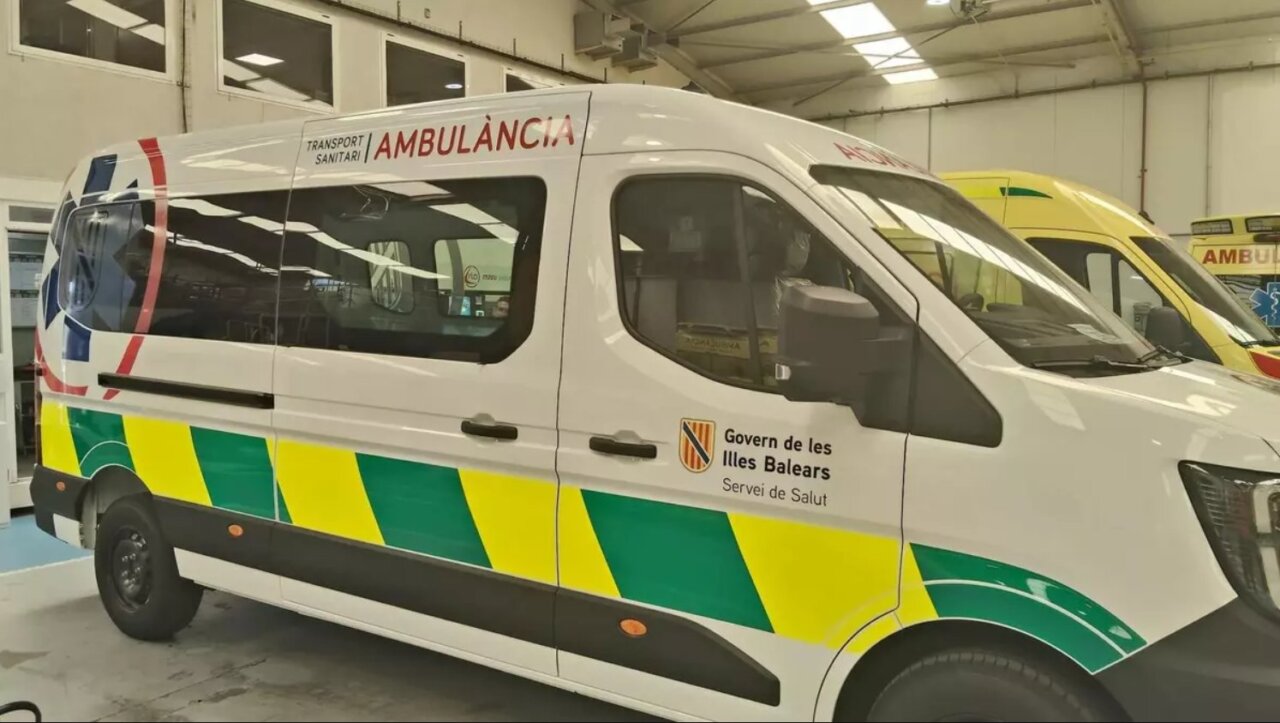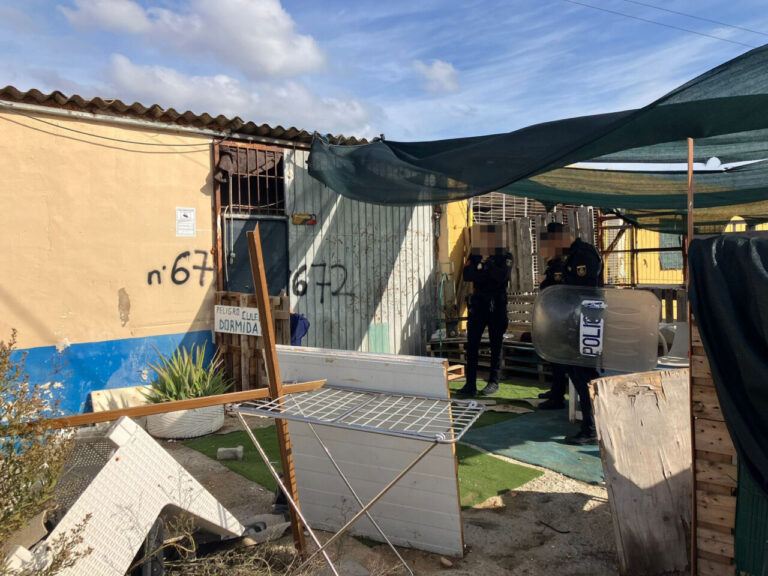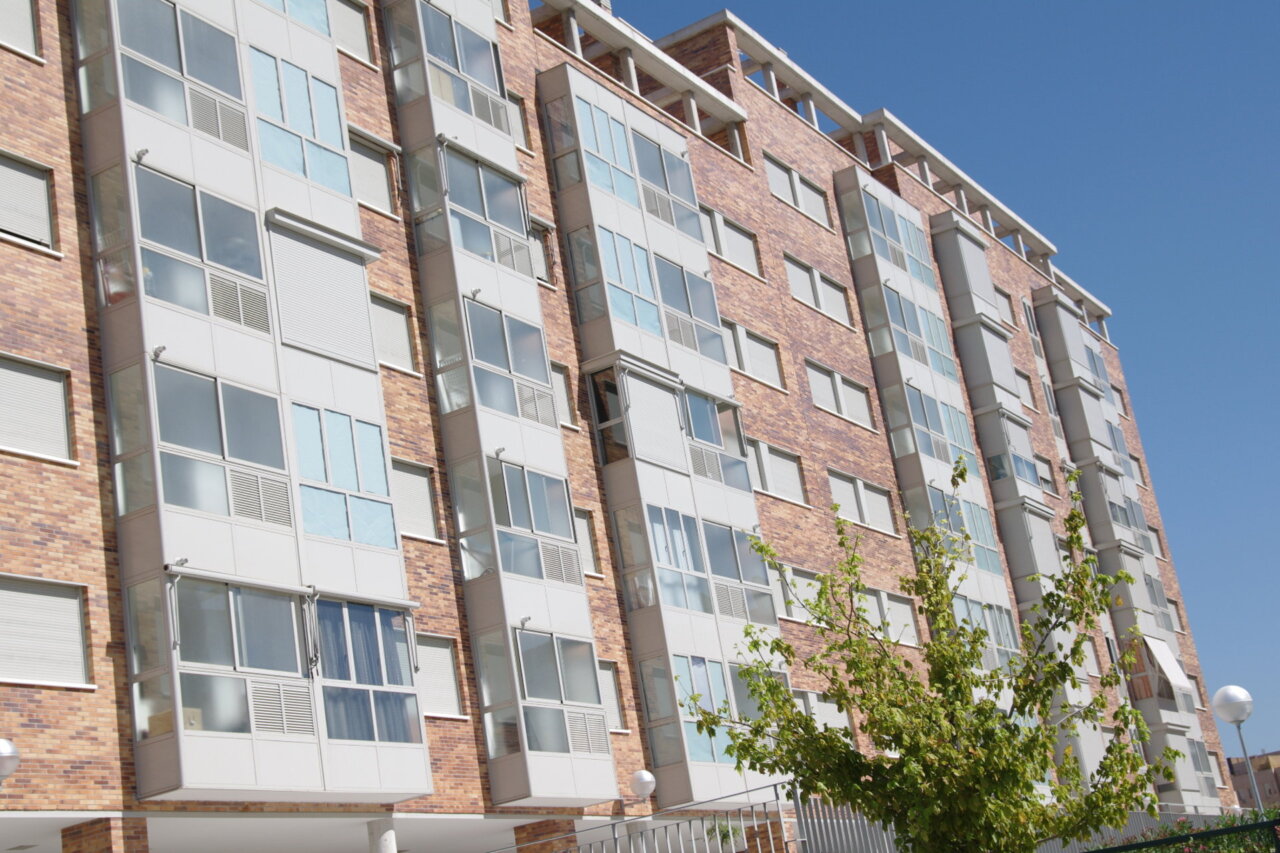The Minister of Health, Manuela Garcia, said Monday in Parliament that the new ambulances purchased for the GSAIB will allow the Balearic Islands to have “the best fleet in its history” and reiterated that the provisional adaptation of several vehicles “has not involved a penny of public money”.
With these statements he responded to the PSIB deputy Patricia Gomez, who denounced an alleged cost overrun resulting from the modifications to reduce the weight of the units for scheduled transport. In this context, the socialist criticisms coincide with what UGT in Ibiza warned about the bottleneck for wheelchair services, as La Voz de Ibiza advanced.
-
An unforgivable error in the bidding documents, the cause of the failed ambulance contract
-
Health alert: unlicensed drivers for new ambulances in Ibiza and Formentera
Garcia defended that they have simply removed a ramp and a seat per ambulance, a measure that – he insisted – “does not affect the safety of users” of the service and that will allow more workers to drive these vehicles with license B. “As much as you repeat a lie, it will not become true,” replied the councilor to Gomez, who argued that the Govern had assumed an extra expense to adapt the fleet.
PSIB denounces disassemblies not foreseen in the bidding specifications
Gómez replied that, according to her review of the contract specifications, it is not contemplated to remove ramps or hydraulic platforms, an equipment that the socialist estimated at 15,000 euros per unit. In addition, he recalled that the Government pays 800,000 euros per month to the concessionaire, whether or not the vehicles circulate. The PSIB argues that if the ambulances are stopped by the adaptations, “a cost overrun” is generated, and added that other associated costs would be the ITV, obtaining the C license for the 110 drivers, which was estimated at 280,000 euros,and a possible salary increase for the higher qualification required, which stood at four million euros.
“You have made your calculations wrong,” replied Garcia, who also reproached Gomez for having left “a poorly sized fleet” when she was consellera. The head of Health defended that the Balearic Islands will now have 246 ambulances, 37 more than in the previous legislature, and all “adapted to the needs of users”.
Ibiza will only have three ambulances with ramp
The criticism of the opposition comes after UGT denounced in Ibiza that, of the ambulances planned for the Pitiusas, only three A2 with ramp will assume all transfers of people in wheelchairs.
As published by this media, the island has only seven drivers with C license, who will have to cover all the shifts of these units, which can cause delays and overloads, as warned the delegate of UGT, Vicente Nadal Ballesteros. In addition, the union criticized that the removal of ramps and seats to lighten the vehicles means that some vans can no longer transport wheelchairs, a change that reduces their clinical versatility and increases the risk of rescheduling if any unit is out of service.
The Conselleria has committed to finance new training to increase the number of professionals with permit C, while UGT demands economic compensation for those who have already obtained it on their own.
PSIB warns of further cost overruns and service impact
Gomez insisted during the debate that, if the Govern must pay for new training, additional ITV or salary improvements arising from these requirements, the set does involve “a clear cost overrun” for the administration. The socialist said that 55 of the 100 ambulances purchased require modifications to not exceed 3,500 kilos, the limit that allows them to be driven with a B license. This point coincides with the origin of the problem detected in the Pitiusas: as explained UGT, the technical specifications set a maximum authorized mass above that threshold for many A2, forcing to have drivers with C / C1 license.
Parallel debate on mental health
In the same plenary session, the PSIB deputy Amanda Fernandez criticized the management of the Govern in mental health, based on the case of a young man with disabilities and autism spectrum disorder. Fernandez denounced that, since he turned 18, he has been treated by three different psychiatrists in two years, which in her opinion shows a lack of continuity of care. García replied that Salud has implemented a “staggered” model, based on the severity of the processes: “All patients will follow the same path and will have access to clearly defined resources,” he defended .










